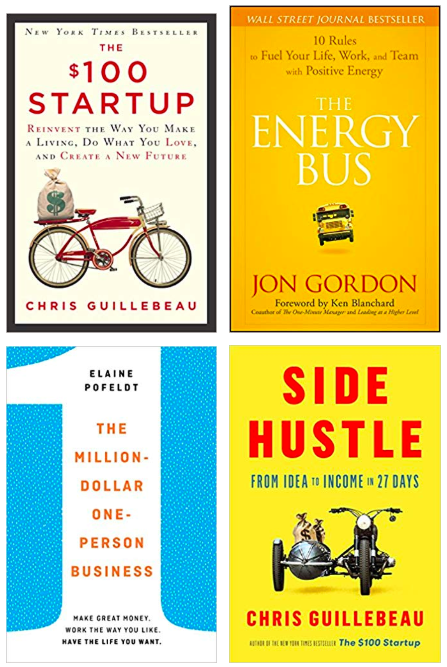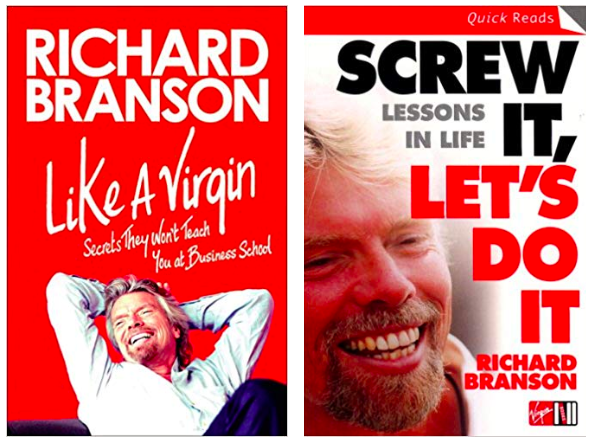A spy novel, New Orleans, Finance and Investing, World War I, and the Civil War were the five book categories covered in my April reading list. Books included in my April reading list are The Black Widow, Napoleon: A Concise Biography, Tao of Charlie Munger: A Compilation of Quotes from Berkshire Hathaway’s Vice Chairman on Life, Business, and the Pursuit of Wealth, The American Civil War: A Military History, and The First World War. Here are all of the books covered in my reading lists throughout the year.
In terms of my favorite book from my April reading list, I will give the nod to Tao of Charlie Munger: A Compilation of Quotes from Berkshire Hathaway’s Vice Chairman on Life, Business, and the Pursuit of Wealth. Napoleon: A Concise Biography was a close second, followed by the other three books. Charlie Munger is one of these individuals who makes me rethink what I know every time I read a quote of his or hear him speak. His words, ideas, and philosophies are that powerful. Warren Buffett is similar in that respect. With that short background out of the way, let’s take a look at books that made my April reading list.
The Black Widow
Author Daniel Silva delivers a banger with The Black Widow featuring legendary spy and art restorer Gabriel Allon, who is set to become the chief of Israel’s secret intelligence service. Just before Allon is promoted to the chief position, world events lure Allon to take part in one final field operation. The story begins with ISIS detonating a bomb in the Marais district of Paris. Allon is contacted by the French government to eliminate the man responsible for the bomb to ensure a second bombing does not occur. As expected, The Black Widow novel bounces around the world following Allon as he works his way through clues to prevent the next terrorist threat.
Napoleon: A Concise Biography
A concise biography is sometimes needed particularly for historical figures. Napoleon: A Concise Biography is one such biography by author David Bell. The book focused on Napoleon Bonaparte’s military career and character. Napoloeon represented the good and bad of human possibility Bell argues. In his early 30’s, Napoleon became the leader of France, Europe’s most influential and powerful country. Fast forward a decade, Napoleon ruled a European empire more powerful than Rome. Napoleon fought wars changing the makeup of Europe and bringing death to millions of people. Eventually, Napoleon ended up in exile on the remote island of St. Helena in the South Atlantic. Bell focuses the book on how important the French Revolution was to Napoleon’s career. Napoleon was able to concentrate his political authority partially as a result of the revolution. He found success in mobilizing human and material resources to win influence across the world. Bell argues that without the revolution, Napoleon would not have been able to fight his many military campaigns or hold onto power.
Tao of Charlie Munger: A Compilation of Quotes from Berkshire Hathaway’s Vice Chairman on Life, Business, and the Pursuit of Wealth
Charlie Munger studied math at the Univeristy of Michigan, trained as a meteorologist at Cal Tech Pasadena while in the Army, and graduated from Harvard Law School without earning an undergraduate degree. How is this even possible? Munger was one of America’s most successful investors, was Vice Chairman of Berkshire Hathaway, and was Warren Buffett’s business partner and confidant for nearly forty years. Munger was and is one of the best people I know to learn business lessons from. He teaches you how to be successful in life and finance. Tao of Charlie Munger: A Compilation of Quotes from Berkshire Hathaway’s Vice Chairman on Life, Business, and the Pursuit of Wealth is a compilation of quotes from Munger’s long life. The quotes were pulled from interviews, speeches, and answers Munger provided at the annual Berkshire and Wesco annual meetings. Munger provides invaluable insights on how to achieve financial success and the philosophies of life. Munger’s investment tips, business philosophy, and ways of life are as unique as they come.
The American Civil War: A Military History
Author John Keegan can be considered one of the best military historians over the past fifty years. Keegan’s books, like The American Civil War: A Military History, return to the famous Civil War battlefields to tell this story. The book poses important themes like the continuation of fighting between sides that were significantly mismatched and the persistence to fight from the malnourished and untrained soldiers. The book helps you to understand warfare by uncovering details about each bloody conflict. Keegan dives into the psychology, ideology, demographics, and economics of what made the Civil War. In addition, the book highlights how important geography was during the key military campaigns. Keegan argues that topography presented complexity and challenges not seen before or since the Civil War. The book brings in comparisons from important wars such as the Napoleonic Wars and the First World War to tell this story.
The First World War
The modern world was created by the deadly First World War. A was that ended the peace of the Victorian era. The First World War shows how the demons of twentieth-century mechanized warfare led to mass casualties, including death. The First World War also brought modernism to the arts, new lines of thinking to psychology and medicine, and different viewpoints on economics and society. Author John Keegan takes you behind the scenes to the negotiating table where Europe’s crowned heads of state were doomed in their efforts to stop the crisis. The book shows how leaders failed in diplomacy and communication. Due to this shortcoming, the war grew to encompass nearly all of Europe. Keegan focuses on the military conflict in The First World War. The military engagements such as Verdun, the Somme, and Gallipoli are highlighted by Keegan. I appreciated the strategies and tactics used by both sides, as well as how important geography and technology played in the war. Keegan weaves in the human aspect by introducing you to the personalities of the leaders overseeing this conflict, including Russia’s Nicholas II, Britain’s Douglas Haig, Germany’s Paul von Hindenburg, and France’s Joseph Joffre. Three great empires, the Austro-Hungarian, the Russian, and the Ottoman, crumbled during World War I. The destruction of these empires bled across Europe informing how politics play out to the present day.






